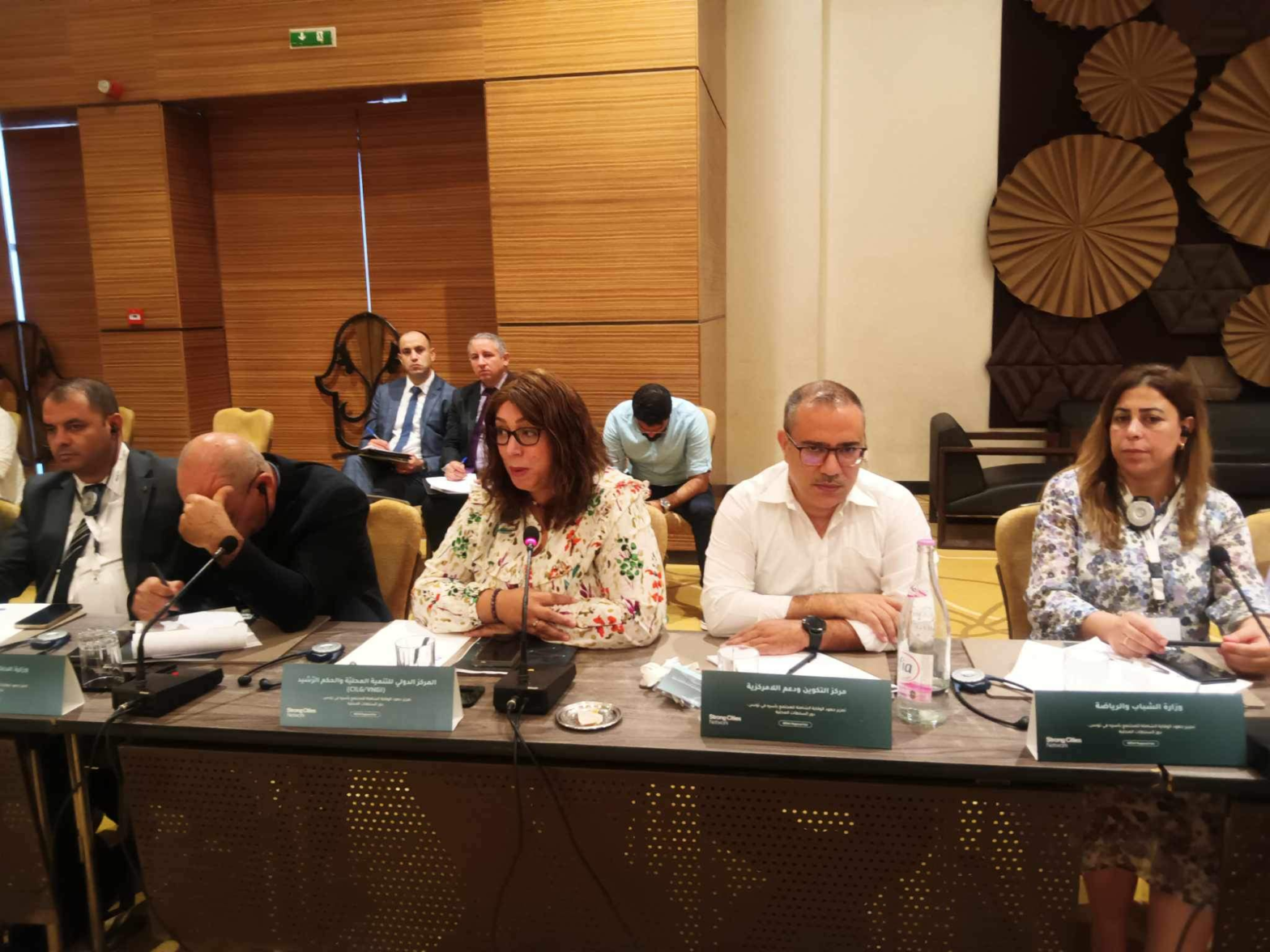On September 10, 2024, Dr. Neila Akrimi, Director General of CILG-VNG International, addressed a key workshop titled “Enhancing Whole-of-Society Prevention Efforts in Tunisia: Role of Local Governments in Preventing and Countering Violent Extremism.” Held in Tunis, this event was organized by The Strong Cities Network in consultation with Tunisia’s National Commission for Counterterrorism (CNLCT) and supported by the European Union (EU) through its STRIVE Cities initiative. The workshop focused on strengthening local authorities’ capacity to implement Tunisia’s National Strategy for Countering Violent Extremism and Terrorism (2023-2027).
Dr. Akrimi’s speech emphasized the vital role of local authorities in preventing violent extremism. She noted that while national governments are responsible for crafting policies to address extremist threats, it is local and regional authorities that are crucial in the direct prevention of such activities. Extremism often starts within local communities and, despite being fueled by online narratives, its roots are deeply embedded in local contexts.

Dr. Akrimi highlighted the importance of local partnerships for effective prevention. “The most effective local prevention strategies are those built on partnerships that involve a diverse range of organizations and professional disciplines,” she stated. However, managing these multi-stakeholder partnerships effectively remains a challenge. In many MENA countries, local leaders are increasingly involved in combating terrorism and extremism and promoting peaceful coexistence. Despite this, cities often remain underrepresented in policy discussions and implementation processes, struggling to secure recognition as key stakeholders.
The workshop revealed several barriers that local authorities face in Africa and the MENA region woth specific focus on Tunisia. Dr. Akrimi pointed out that these barriers include a lack of understanding of the threat, inadequate mandates from national governments, and limited resources and expertise. Additionally, there is a significant disconnect between national policymaking and local implementation. Multilateral institutions and national governments frequently overlook the role of cities in prevention policies, focusing their resources on national governments and civil society, which leaves local authorities under-supported.

Dr. Akrimi also addressed the Prevent Duty, which requires certain authorities—such as education, health services, local governments, police, and criminal justice agencies—to help mitigate the risk of individuals becoming terrorists or supporting terrorism. She outlined ten key principles for local policies aimed at preventing violent extremism:
- Agreeing on Definitions and Establishing Goals: Clear definitions are critical for shaping effective policies. The focus of the policy will differ based on whether violent extremism is framed as a security issue, a process of radicalization, or a broader social problem.
- Shifting from “At-Risk Groups” to “Risk Factors”: Prevention efforts should focus on the contextual factors contributing to radicalization rather than targeting specific demographic groups.
- Prevention is not Detection: While detection focuses on identifying individuals already on the path to extremism, prevention should address the underlying conditions and environments that facilitate extremism.
- Differentiated Inclusion Over Integration: Local policies should promote inclusive identities that ensure all citizens feel part of the collective, regardless of their background.
- Targeting Young People: Extremist groups increasingly target younger individuals. Prevention should include educational policies that promote diversity and democratic values, along with targeted interventions for vulnerable youth.
- The Associative Fabric: A strong network of civil society and community organizations fosters trust and a sense of belonging, which can help counter feelings of alienation.
- Constructing Alternatives to Counter-Narratives: Effective prevention should go beyond countering extremist rhetoric by offering positive alternatives that provide a sense of community and purpose.
- Recognizing the International Political Dimension: While extremism is a local issue, it is often influenced by global conflicts and injustices. Local actors must understand and address these international dimensions.
- Coordination is Essential : Effective prevention requires coordination among municipal departments, civil society, and national and regional authorities, ensuring that local actions align with broader national strategies.
- Regular Evaluation : Prevention policies must be continually assessed and adjusted based on evidence and outcomes to ensure they remain effective.
Dr. Akrimi’s participation underscored the essential role of local governments in Tunisia’s efforts to combat violent extremism and highlighted the need for comprehensive support and integration into national and international strategies.

